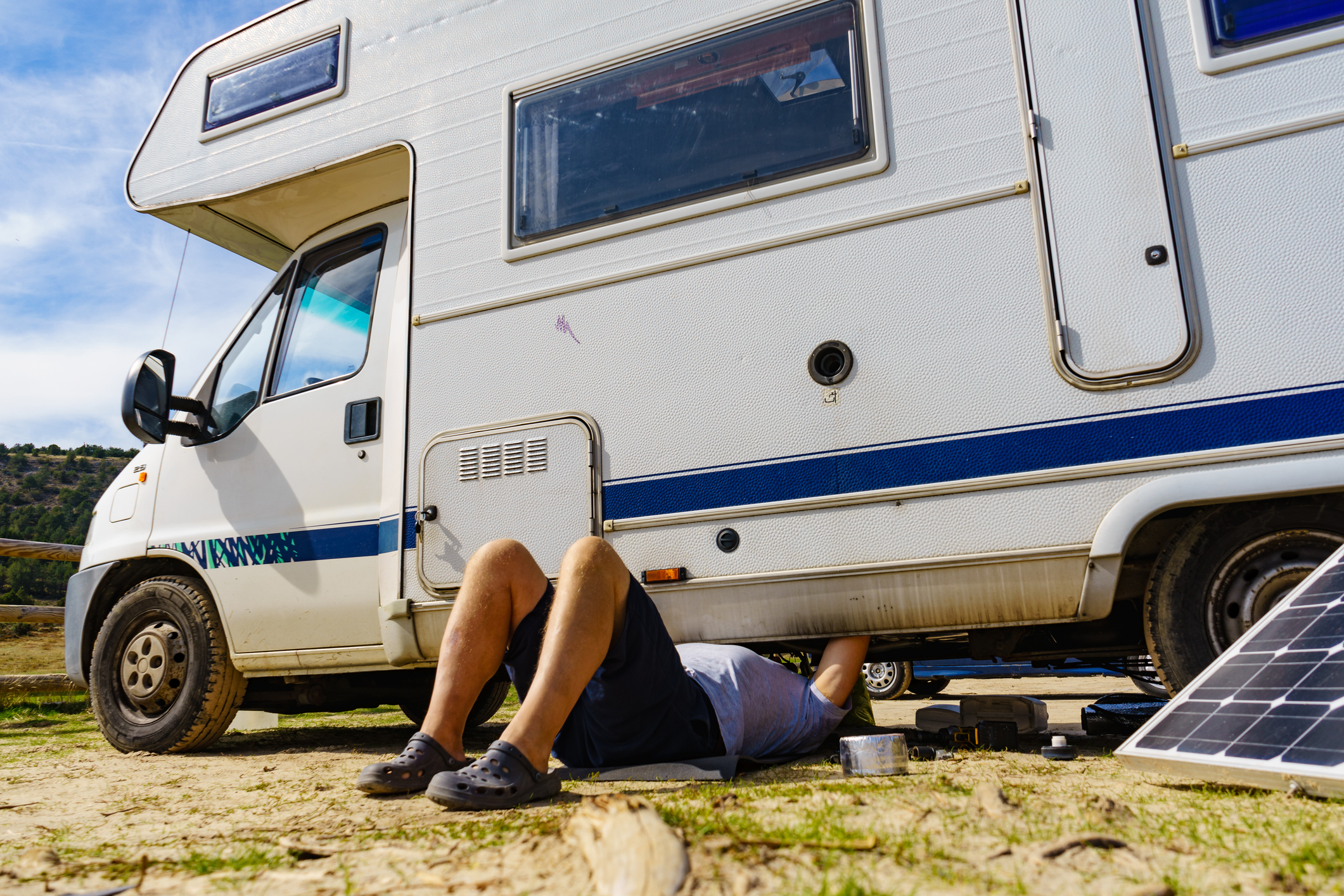Who doesn’t dream of living or calming an RV in a sweet villa this summer? With weak dollars, both options seem more affordable than travel in Europe, for example, for retirees who are particularly mindful of spending. Plus, owning an RV and a second home will allow you to provide you with vacations for years to come.
The market is chaotic and fears a recession will increase, so it may be a good time for retirees to take steps to cut costs. One potential solution is to reduce from your current home and retire in an RV, either part-time or in a major residence.
Similarly, if you own a second home at retirement, or have saved you to buy a purchase, we recommend considering Van Life as an alternative. Throwing down a permanent home for an RV living room may save you enough money to allow for early retirement.
Subscribe to Kiplinger’s personal finances
Be smarter, better informed investors.
Save up to 74%
Sign up for Kiplinger’s free e-newsletter
Remember profits and prosperity with expert advice on investments, taxes, retirements, personal finances and more – directly to email.
Profit and prosperity with the advice of the best experts – directly to your email.
However, RV living is not the case for everyone. And it’s important to weigh the pros and cons before deciding to give it a try on VanLife.
Benefits of a RV living in a villa
(Image credit: Getty Images)
The consumer price index in March found shelter costs rose 4% per year. However, RV traders report that the average rental price of RVs has only increased by $1 since 2023.
Kelsey Fritz, a travel expert for RV traders, says there could be a huge savings associated with full-time van life.
“For full timers who want to live on the road, RV Life will largely reduce utility costs by making you more aware,” she explains. And while Fritz points out that many variables are involved, she says, “for most people it comes with a lot of downsizing space and more.”
For retirees who are looking for a lot of travel, the RV living room offers potential savings over airfares and hotel rooms, Fritz says. Plus, Van Life offers the flexibility to stay in an area that proves attractive without worrying about going home.
Fritz also notes that retirees in particular may be grateful to the RV Park community.
“Many of these campsites and RV parks are made specifically for (retirement people),” she explains. “There’s a pickle ball court and an advanced prom” (usually a well-planned political party for older snowbirds).
RV living is also a good way to reduce some of the costs of owning a second home, especially in the context of climate risk. As extreme weather drives homeowners’ premiums upwards in different corners of the country, it’s advantageous to have the option to abandon high-cost areas to chase savings. Vanlife can forgive that.
Additionally, using a villa will lead to the same location during use. Visiting the villa on occasion on long weekends is novel while you work and there are limited opportunities to escape. Spending several weeks at a villa at a time because you’re not working can be boring. You may long for the new experiences Vanlife can offer.
The disadvantages of living with RV compared to villas

(Image credit: Getty Images)
Van Life benefits retirees, but there are also RV pitfalls to consider. Even a rather economical Class C camper van costs on average between $50,000 and $200,000. It may be cheaper than buying a second home, but don’t forget there are costs to consider beyond the upfront costs.
Insurance, fuel, maintenance, camping or RV park fees must be addressed. Maintenance costs can be difficult to budget as they can largely depend on the road conditions you encounter and the amount of RV usage.
Fritz also warns that RV maintenance is beyond typical vehicle maintenance. There are tasks that need to be performed regularly and seasonally, like winterization. It may not be that cheap to maintain an RV and maintain a second home in good condition.
“In RV, these tasks are your personal responsibility and the willingness to do them will affect your camping experience,” says Fritz.
Plus, if you’re someone with health issues, Van Life might pose challenges. In addition to having to scramble to find a trip, depending on where your trip goes, you may be able to sign up for a Medicare Advantage plan and be restricted if you encounter urgent issues outside of your major coverage area.
Also, while homes tend to appreciate their value over time, as with all cars, RVs tend to lose value year by year. If you have solid money after retirement, you can always sell your villa and pocket your revenue. You won’t be able to walk away much by selling used RVs, especially those that show signs of wear.
Is RV alive for you?
RV Living may be able to give you freedom as you have time in your hands, while allowing you to lower the costs of owning a home if you want to make that leap.
However, if you have never experienced Van Life before, you may want to give it a try before purchasing. Check out some RV rental sites, including Outdoor, RVShare, and Rvezy.
RV costs vary greatly depending on the type of vehicle you need, amenities and storage space. The selected RV should also depend on your specific travel needs. You may also not plan immediately.
Whether you decide to rent and buy, or accept Van Life on a full-time and occasional basis, Fritz argues that research is important.
“If you’re going to RV full-time, you really need to define what your needs are and what your budget is,” she says. “Learning in an RV is truly about enjoying freedom, so research what your plans and fees are.
